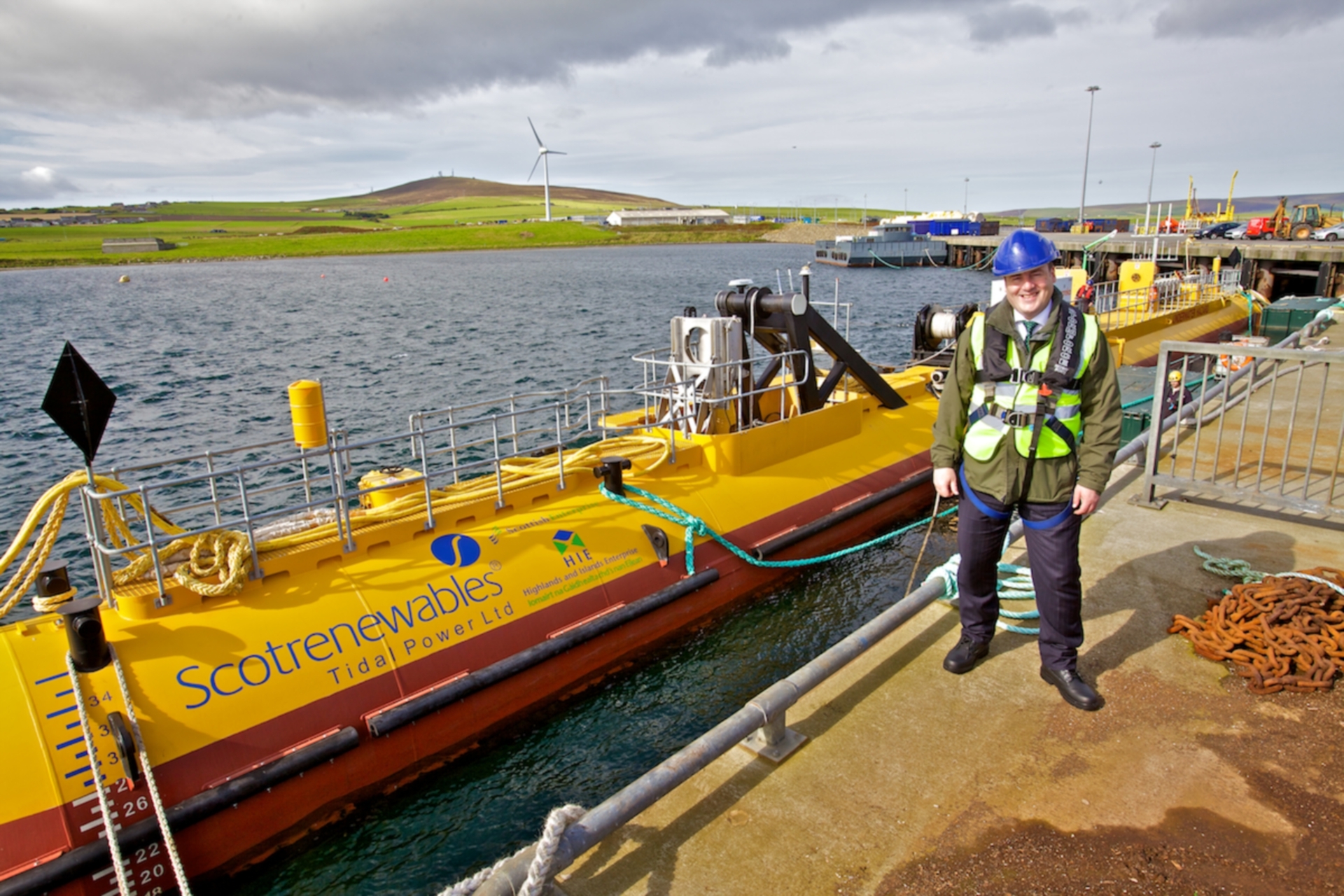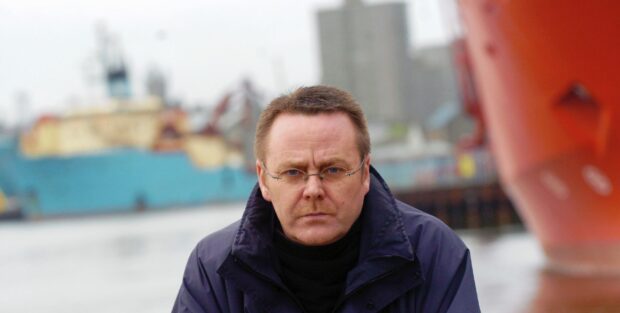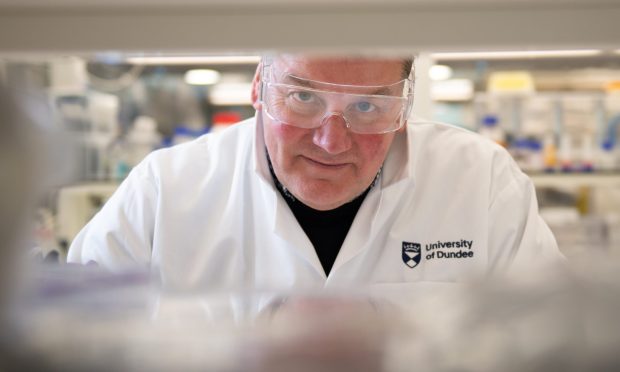The world’s most powerful tidal turbine, which is due to begin testing in Orkney, was yesterday hailed as a potential “game changer” by Business, Innovation and Energy Minister Paul Wheelhouse.
At 63 metres in length, Scotrenewables’ SR2000 is longer than Edinburgh’s Scott Monument and is capable of generating 2MW of power – enough to meet the needs of approximately 1,000 homes over the course of a year.
Scotrenewables Tidal Power Limited is focused on developing tidal energy turbine technology with the potential to produce cheaper energy.
Its floating technology allows simpler and safer manufacture, installation, access and maintenance. The company employs 25 staff with offices in Orkney and Edinburgh.
Mr Wheelhouse visited Hatston pier where the unit is undergoing final commissioning checks before being connected to its mooring system on the European Marine Energy Centre’s test site in Orkney.
He said: “Scotland’s capacity to generate tidal power is considerable and this device has the potential to be a real game changer for the industry, not only here in Scotland, but across the world.
“Floating technology like this is likely to be easy and cheap to install, maintain and decommission. This will increase the commercial viability of tidal energy, which is crucial as we continue to transition towards a low carbon economy.
“It is encouraging that Scottish Government investment has helped move the project to this point. I congratulate Scotrenewables on reaching this significant milestone and look forward to staying up to date on the testing programme.”
Andrew Scott, chief executive of Scotrenewables, said: “Scottish Government have been consistent in their vision and support for the marine renewables sector and that has been vital in getting a second generation technology like ours to this stage.
“It’s obviously a critical phase in the project but we’re looking forward to the test programme and providing clear evidence of the significant advantages our technology can bring to the sector whilst offering a step reduction in costs.”
The project has been supported by Scottish Enterprise’s WATERS II scheme along with investments from Scotrenewables’ shareholders which include ABB, DP Energy, Fred. Olsen, Total and Scottish Government via the Renewable Energy Investment Fund (REIF).










